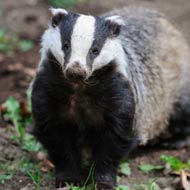Concern for badgers trapped in cages during heatwave

Badgers may be trapped with no access to water until the cages are checked.
With temperatures set to soar once again, the BVA has expressed concern about the welfare of badgers trapped in cages for extended periods of time.
According to the organisation, there are reports that badgers may be trapped with no access to water until the cages are checked, which might not be until the next day.
Best practice guidlines published by Natural England state that culling should be as humane as possible with steps taken to mitigate against exposure to bad weather. But traps are often set during the day and not checked until the following morning, meaning that a badger could be trapped for 12 hours or more.
In consultations about badger control, the BVA has appealed for tougher guidance to ensure cages are checked at regular intervals throughout the day, especially in the morning. It has also called for culling processes to operate as humanely as possible with special consideration given to badgers trapped in adverse weather.
“There are obvious welfare concerns if badgers are being trapped in extreme temperatures with no access to water for long periods of time,” said BVA president John Fishwick. “We would urge Natural England and the Department for the Environment, Food and Rural Affairs to review what is happening currently in cull areas and take mitigating action if required while the heatwave continues.



 The latest
The latest